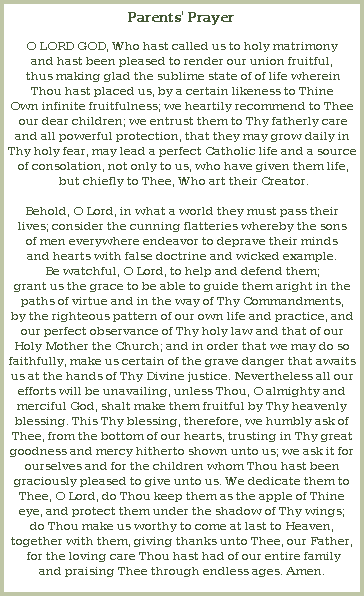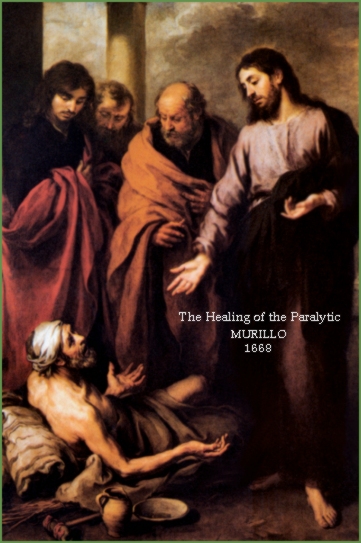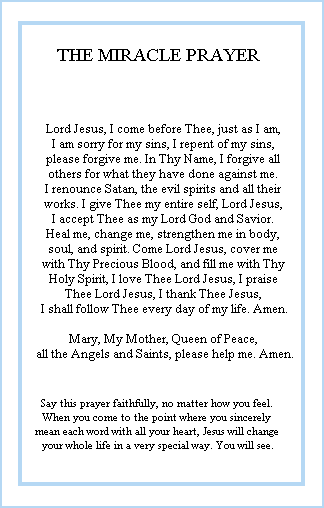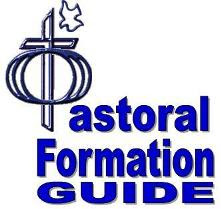
By Father Ray Ryland, Ph.D., J.D.
Perhaps you have noticed that in the missalette, one paragraph from today’s second lesson may be omitted. Yet for family life, that alternative passage, especially Colossians 3:18, is one of the most important verses in all Scripture.
“Wives, be subordinate [another translation, ‘subject’] to your husbands, as is proper in the Lord.” Does hearing that raise any eyebrows? What do you make of the other passage that is equally important for Christian marriage? Ephesians 5:21–25 states that “the husband is the head of his wife, as Christ is the head of the church. . . .”
Does that sound like reducing the wife to second-class citizenship in the family? If that’s your interpretation, then you have totally misunderstood the meaning of these and related passages about the roles of husband and wife. What then do these passages mean?
As Christ Loved the Church
The husband is the head of the wife.
The key word here is the Greek term kephale, literally “head.” We ordinarily use the word “head” in a metaphorical sense to mean ‘leader,” “chief,” “director,” or just plain “boss.” When the New Testament uses the word “head” in a metaphorical sense, it means something quite different.
Fifteen times in the New Testament the word kephale is used in a metaphorical or figurative sense. In one instance kephale refers to God as “head” of Christ. Twelve times (counting two repetitions as separate instances) the word kephale refers to Christ as “head” of the Church or of creation itself. In these thirteen usages, the word ‘head’ means such things as “exalted originator or completer,” “source,” “enabler” (one who brings to completion), “crown.”
Two times the word kephale refers to the husband as “head” of the wife. In these two uses, we must assume that the word kephale does not mean something totally different from the other thirteen uses of the word.
This assumption, it seems to me, is mandated by what Scripture says about how the husband is to be “head” of his wife. Look at Ephesians 2:25: “Husbands, love your wives, as Christ loved the Church and gave himself up for her, that he might consecrate her. . . .” Of course God also commands wives to love their husbands, but he has given a further command to husbands. God commands husbands to love their wives by giving up their lives for their wives, just as Christ as “head” of the Church gave himself for the Church.
Service and Sacrifice
It boils down to this. The “headship” which God assigns to the husband is basically the role of serving his wife (and of course, the children). Not many husbands are called upon literally to die for their wives. But all husbands are called by God sacrificially to serve their wives.
To be “head” of his wife means the husband must lead, must protect, must provide for, must care for, his wife (and of course, for the children). It means giving intelligent and sensitive leadership to his wife (and of course, to the children). It certainly does not mean being “boss,” in our usual sense of the word.
But note this: Sacred Scripture gives us a clear specification for the husband’s “headship.” There’s only one way in which the husband can truly serve as “head” of his wife. (Remember, we’re talking about Christian marriage, not marriage in some generic sense.) 1 Corinthians 11:3 gives the proper order: “. . . the head of every man is Christ, the head of a woman is her husband, and the head of Christ is God.”
The fact is, if the wife is to accept and cooperate with the husband’s being “head,” then his life must be submitted to Jesus Christ. As we’ve just said, the husband’s role as “head” is a role of service. That service, above all, consists in his mediating the love of Jesus Christ to his wife and to his children.
Now note this carefully: according to Scripture, there’s only one way in which a husband can truly serve as “head” of his wife. 1 Corinthians 11:3 gives the proper order; “But I want you to understand that the head of every man is Christ, the head of a woman is her husband, and the head of Christ is God.” In other words, a wife can accept and cooperate with the husband’s being ‘head” only to the extent that he (the husband) submits his life to Jesus Christ. The husband’s role as “head” is a role of service. That service, above all, consists in mediating the love of Jesus Christ to his wife and to his children.
Be Subject to One Another
Now let’s go back to Ephesians 5.
The wife is “subject’ to the husband; the husband is “subject” to the wife. Ephesians 5:21 gives the command to both husbands and wives: “be subject to one another.” This is the opening line in the key New Testament passage about the relationship God intends to exist between husbands and wives. The wife “subjects” herself to her husband by accepting his role as “head.” That is, she cooperates with him in fulfilling that role of service to her and to their children. On the other hand, the husband “subjects” himself to his wife by accepting her needs for love and care, for provision and order, day after day, so long as they both shall live.
For analogy, recall the circumstances of the wedding feast in Cana of Galilee (John 1:1–12). In their relation, Our Lord and His Mother exemplify different kinds of “subjection.”
Our Blessed Mother subjected herself to her divine Son by pointing out the immediate need: “they have no wine.” In other words, Mary told Jesus the problem and asked Him to exercise His role. And what was Jesus’ role? To subject Himself to His mother by responding to the need she brought: the need for more wine. Jesus made it clear that His role was distinct from that of Mary’s. Then He subjected Himself to her request and the need she brought to His attention.
So God intends there should be mutual “subjection” of husbands and wives. Husbands must subject themselves to the needs of their wives and children. Wives must subject themselves to their husband’s service and leadership.
Subordination and Status
Now: what about equality in marriage?
For Christians, we read in Galatians 2:28, “There is neither Jew nor Greek, there is neither slave nor free, there is neither male or female; for you are all one in Christ Jesus.” In other words, human distinctions mean nothing in the eyes of God. How does this fit in with the husband being “head” of the wife?
First of all, we have to distinguish between something we can call “status” and something we may call “subordination.” “Status” refers to what we eternally are in the eyes of God. “Status” is what Scripture is referring to in the passage we just cited from Galatians—no human distinctions matter in God’s eyes. In sharp contrast, “subordination” refers to a role or function God calls us to fulfill.
Think about the Blessed Trinity for a moment. Through her Scripture and Tradition, the Church teaches us that we are made in the image and likeness of God. Therefore, life in the human family is supposed to reflect and be modeled after the divine family within the Godhead—the Blessed Trinity.
God has revealed Himself as one God in three Persons, all perfectly, eternally equal in divinity. The Son is eternally equal to the Father: “God from God, Light from Light, true God from true God,” as we say in the Creed. Yet the Son is also “subordinated” to the Father; he is “subject” to the Father. “When all things are subjected to him [that is, to the Son], then the Son himself will also be subjected to him [the Father] who put all things under him [the Son], that God may be everything to every one” (1 Cor. 15:28).
The Holy Spirit is fully God, like the Father and the Son. The Holy Spirit is eternally equal to the Father and to the Son. Yet the Holy Spirit is also subject to the Son, subordinated to the Son. “. . . if I do not go away, the Counselor will not come to you; but if I go, I will send him to you.” Furthermore, the “Spirit of truth . . . will glorify me, for he will take what is mine and declare it to you” (Jn. 15:7, 13–14).
Here is what God has revealed. The Son and the Holy Spirit are equal to the Father, yet subject to the Father, subordinated to the Father. Their subordination to the Father—that is, the role they play in relation to the Father—in no way detracts from their status of equality with the Father. In Christian marriage, the wife is called to play a role of subordination. Fulfilling that role in no way detracts from her status of absolute equality with her husband.
True Complementarity
So why is the husband the “head” of the family, rather than the wife?
One obvious reason is that since the wife bears the children and takes the leading part in their nurturing, the husband is simply much freer to fill the role of “head.” Another reason, in times past, was that the greater physical strength of the man better qualified him for service as “head” of his wife and of his family.
But there’s a deeper reason for the husband’s being assigned the role of “head” of the family.
A couple may choose to reject scriptural teaching about the “headship” of the husband. They may simply affirm—as so many couples today do affirm— “because we’re both persons we are equal and therefore equal in our marriage.” But on the human level this is false: the husband and wife are not simply “equal.”
Nor is this a question of civil rights. The extent of civil rights a wife may or may not have varies enormously from culture to culture. But in all cultures there is one constant fact. In the marriage itself, the wife occupies a place, fills a role, which is more central, more important to the spiritual and emotional lie of the family, than is the role of the husband. And because of that—this is very important—on the natural level, there is an inescapable inequality between husband and wife.
That’s the fact. Now let me offer an opinion about that fact. My opinion is not the teaching of the Catholic Church, but it harmonizes with what the Church does teach about marriage.
Now remember what we’ve said: On the natural level, there is a basic inequality of husband and wife, simply because of the wife’s more fundamental role in the family. I believe that God bestows “headship” on the husband to bring the husband up, so to speak, to a position of full equality with his wife.
I believe furthermore that the wife is called by God to share in God’s bestowal of “headship” on her husband. She does this when she lovingly consents to his filling that role. She does this when she helps him in every way she can to carry on his service of headship.
When both husband and wife cooperate this way in his filling his role of “headship,” then—and only then—will you have true equality of husband and wife. Then—and only then—will you have true complementarity. And that, as Pope John Paul repeatedly taught us, is a key to true Christian marriage.
**********
This, in outline, is God’s plan for Christian marriage.
Spouses can ignore God’s plan, but only at the cost of denying themselves the fulfillment God intends for them in their marriage.
Through the intercession of the Holy Family, may God grant to all who are called to the holy estate of matrimony the grace to embrace and to live out his plan for their lives.
Father Ray Ryland is CUF's spiritual advisor.




























